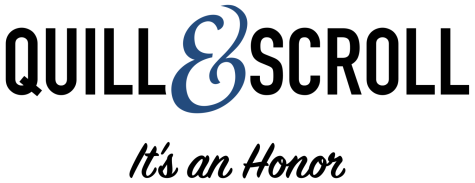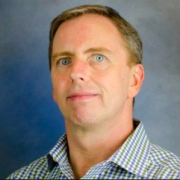Journalists have help in the fight for access to information
By Frank LoMonte
Brechner Center, University of Florida
The first person ever to call the Student Press Law Center’s legal hotline for help was a high-school newspaper editor from Pecos, Texas, whose principal spiked a news story that he considered too controversial. And over its 43 years, tens of thousands of students (and an occasional teacher) have called the SPLC for free legal help when school administrators censor their work – almost always for image-control reasons.
The SPLC was founded to give students like that Texas editor, Stephen Bates, a powerful ally to speak up to authority figures who, acting out of fear and insecurity, silence young voices.
But there is a different type of silencing taking place today in America’s schools and colleges, and the services offered by the SPLC have changed over the years to keep up with the new frustrations journalists face.
Over my nine years leading the SPLC’s legal staff, I developed a name for this new method of squelching unfavorable news: “Censorship by starvation.” Instead of directly ordering students not to cover certain topics – though far too much of that censorship still goes on – authorities simply deny journalists from access to vital information.
Do you want to know how many times students brought guns into the school last year? How many students got concussions playing football? Or might be deported because they’re in the U.S. without paperwork? Well, good luck getting those answers, because in recent years, journalists have been told all of that information – even without any private details about any individual student – is off-limits to the public.
State open-records laws give the public – including minors – the legal right to demand access to just about any record kept by a government agency. That includes a public school (including a charter school) or school district. Getting schools to actually comply with the law can be a challenge.
In most states, when you make a request to see a record and you get rejected, your only recourse is to get a lawyer and go to court. That’s hard enough for professional journalists whose companies have lawyers on staff. It can be especially intimidating for students to find themselves on the other side of a courtroom from the person writing their college recommendation letter.
Still, student journalists are a persistent bunch. To a determined reporter on the trail of a big story, “no” is just another way of saying “try harder.”
Students in St. Louis Park, Minnesota, are enforcing their right to know by suing their school under the Minnesota open-records law for the chance to see a hallway security video that shows a potential assault on a Muslim student. The student reported that a classmate ripped the hijab off her head, but the classmate – a popular athlete – denied the accusation and went unpunished. The video is the public’s only way of knowing whether the school covered up wrongdoing. But the school insists the footage is confidential.
As I write this column, SPLC attorney volunteers are helping two editors in Santa Rosa County, California, go to court to enforce their right to inspect the court files of a lawsuit against their high school. The judge in the case sealed the entire file – even his own order explaining why the file is sealed – so the public has no idea how the lawsuit turned out.
To respond to the growing demand for help getting access to information about schools and colleges, the SPLC launched a service in July to help non-experts take cases to court more easily. 
Volunteers from major law firms are working with SPLC attorneys to come up with step-by-step instructions for enforcing state public-records laws. Find them on the SPLC website. The project is only about half done, with 26 states and the District of Columbia covered, but by 2018, guides should be finished for every state.
I know just how important public records can be for journalists – I was one of them. Before becoming a lawyer, I chased stories about corrupt and incompetent government officials with the help of freedom-of-information laws. Those laws helped me prove that a candidate for governor cheated on his income taxes and paid nothing. They helped me prove that hospitals were misusing money meant to provide free healthcare for poor people, spending it on unnecessary luxury items like bonuses for doctors.
I believe so strongly in the public’s right to information that, starting in August, I agreed to move south and take on a job where I can devote myself full time to improving the laws that allow Americans (especially journalists) to keep watch over government agencies. I’ll be working directly with lawyers, journalists and legislators across the country on making public-access laws actually work better as director of the Brechner Center for Freedom of Information, which is based at the University of Florida.
That doesn’t mean I’m “checking out” of the student-rights movement. I’ll stay on as volunteer co-chair of New Voices USA, a nationwide campaign to pass state laws – 13 so far, with three added in 2017 alone – to guarantee student journalists and their advisers that they can safely bring news and opinions to their communities without fear of being silenced or punished.
And it doesn’t mean students will be left without a full-time advocate protecting their rights. The SPLC has hired an internationally known legal expert and educator Hadar Harris to take over as executive director, and she brings a lifelong commitment to protecting the rights of the less-powerful against abuse.
Harris has worked in law schools in California and Washington, D.C., for the past 15 years, supervising law students as they provided legal help to people who couldn’t afford to hire their own lawyers. That is a proven track record of caring public service that makes Harris the ideal leader to take the SPLC soaring to new heights.
Professional news organizations are having a difficult time. Their audiences are shrinking, their advertisers have left for Facebook and Google, and public distrust is reaching all-time highs. But student journalism has never been better – and now students have the best human-rights lawyer in the country on their side. I’m honestly a bit envious that Hadar Harris will be the leader of the SPLC as legalized censorship in schools becomes a thing of the past – and no one will cheer louder than me on the day she finally makes it official.
Attorney Frank LoMonte became director of the Brechner Center for Freedom of Information at the University of Florida College of Journalism and Communications in August 2017, after nine years as executive director of the Student Press Law Center.


Leave a Reply
Want to join the discussion?Feel free to contribute!